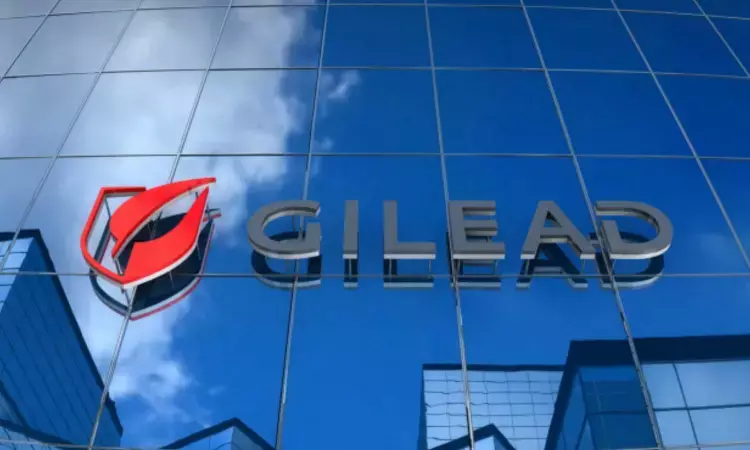- Home
- Medical news & Guidelines
- Anesthesiology
- Cardiology and CTVS
- Critical Care
- Dentistry
- Dermatology
- Diabetes and Endocrinology
- ENT
- Gastroenterology
- Medicine
- Nephrology
- Neurology
- Obstretics-Gynaecology
- Oncology
- Ophthalmology
- Orthopaedics
- Pediatrics-Neonatology
- Psychiatry
- Pulmonology
- Radiology
- Surgery
- Urology
- Laboratory Medicine
- Diet
- Nursing
- Paramedical
- Physiotherapy
- Health news
- Fact Check
- Bone Health Fact Check
- Brain Health Fact Check
- Cancer Related Fact Check
- Child Care Fact Check
- Dental and oral health fact check
- Diabetes and metabolic health fact check
- Diet and Nutrition Fact Check
- Eye and ENT Care Fact Check
- Fitness fact check
- Gut health fact check
- Heart health fact check
- Kidney health fact check
- Medical education fact check
- Men's health fact check
- Respiratory fact check
- Skin and hair care fact check
- Vaccine and Immunization fact check
- Women's health fact check
- AYUSH
- State News
- Andaman and Nicobar Islands
- Andhra Pradesh
- Arunachal Pradesh
- Assam
- Bihar
- Chandigarh
- Chattisgarh
- Dadra and Nagar Haveli
- Daman and Diu
- Delhi
- Goa
- Gujarat
- Haryana
- Himachal Pradesh
- Jammu & Kashmir
- Jharkhand
- Karnataka
- Kerala
- Ladakh
- Lakshadweep
- Madhya Pradesh
- Maharashtra
- Manipur
- Meghalaya
- Mizoram
- Nagaland
- Odisha
- Puducherry
- Punjab
- Rajasthan
- Sikkim
- Tamil Nadu
- Telangana
- Tripura
- Uttar Pradesh
- Uttrakhand
- West Bengal
- Medical Education
- Industry
Gilead Sciences Seladelpar gets positive CHMP opinion for Primary Biliary Cholangitis

Foster City: Gilead Sciences, Inc. has announced that the Committee for Medicinal Products for Human Use (CHMP) of the European Medicines Agency (EMA) adopted a positive opinion recommending seladelpar for the treatment of primary biliary cholangitis (PBC) in combination with ursodeoxycholic acid (UDCA) in adults who have an inadequate response to UDCA alone, or as monotherapy in those unable to tolerate UDCA.
The final European Commission decision is anticipated in the first quarter of 2025. This follows the accelerated approval by the U.S. Food and Drug Administration (FDA) in August 2024.
PBC is a rare, chronic, autoimmune disease of the bile ducts that affects approximately 15 per 100,000 people in Europe, primarily women, and can cause liver damage and possible liver failure if untreated. The most common symptoms of PBC are pruritus (chronic itch) and fatigue, which can be debilitating for some people. The disease currently has no cure and treatment goals for people living with PBC include suppressing liver damage and reducing the symptoms related to cholestasis. The effect of treatment on slowing disease progression is primarily measured by an improvement in liver biochemical tests, including the normalization of alkaline phosphatase (ALP) levels, an important marker of disease progression in PBC.
“This positive opinion from the Committee confirms promising clinical benefit and value of seladelpar, which has been underscored by its differentiated body of data,” said Palak Trivedi, MD, BSc (Hons), MBBS, MRCP (UK), ESEGH, PhD, Associate Professor and Consultant Hepatologist at the Queen Elizabeth Hospital in Birmingham. “After many years of treating people with PBC, I have seen the critical unmet need for additional effective and symptom-directed treatment options. The recommendation of a potential new therapy that can help treat both the disease and improve symptoms that impact quality of life is a significant milestone for the PBC community.”
The positive opinion was supported primarily by data from the pivotal placebo-controlled Phase 3 RESPONSE study. In the study, 62% of participants taking seladelpar achieved the primary endpoint of composite biochemical response at month 12 compared with 20% of participants taking placebo. Treatment with seladelpar led to normalization of ALP values in 25% of trial participants at month 12. This change was not seen in any trial participants receiving placebo. ALP is a cholestatic marker that is a predictor of risk for liver transplant and death. Change from baseline pruritus score at month 6 was a key secondary endpoint; treatment with seladelpar led to a statistically significant reduction in pruritus compared with placebo. Participants entering the study with moderate to severe itch experienced a 3.2-point improvement on a pruritus scale of 0-10 after six months of treatment with seladelpar, compared to a decrease of 1.7 points with placebo.
“We are encouraged by the CHMP’s positive opinion as we are one step closer to providing seladelpar to people living with PBC in Europe,” said Timothy Watkins, MD, MSc, Vice President, Clinical Development of Inflammation Therapeutics, Gilead Sciences. “There are still people living with PBC who do not have an adequate response to current medicines or who are still experiencing symptoms, such as debilitating itch. As a leader in liver disease, Gilead is committed to bringing forth therapies that not only improve markers of disease progression but also help alleviate symptoms which impact the lives of people living with this rare liver condition.”
In addition to Europe, Gilead is working with regulatory authorities on marketing applications for seladelpar in other parts of the world. In August 2024, the FDA granted accelerated approval for seladelpar for the treatment of PBC in combination with (UDCA) in adults who have had an inadequate response to UDCA, or as monotherapy in patients unable to tolerate UDCA. Continued approval of seladelpar for the approved indication may be contingent on verification and description of clinical benefit in confirmatory trial(s).
Read also: Gilead Sciences ropes in Sanofi official Dietmar Berger as new Chief Medical Officer
Ruchika Sharma joined Medical Dialogue as an Correspondent for the Business Section in 2019. She covers all the updates in the Pharmaceutical field, Policy, Insurance, Business Healthcare, Medical News, Health News, Pharma News, Healthcare and Investment. She has completed her B.Com from Delhi University and then pursued postgraduation in M.Com. She can be contacted at editorial@medicaldialogues.in Contact no. 011-43720751


